
Marsaxlokk: Malta's Quaint Fishing Village
Marsaxlokk, a picturesque fishing village located in the southeastern region of Malta, is a gem waiting to be discovered. Known for its vibrant and colorful traditional fishing boats called 'luzzus', Marsaxlokk offers visitors a serene and authentic Maltese experience. The harbor is lined with these unique boats, each painted in bright hues and adorned with the Eye of Horus, believed to protect fishermen at sea. Strolling along the waterfront, you will find an array of seafood restaurants serving the freshest catch of the day. The Sunday fish market is a must-visit, where you can see local fishermen selling their daily haul. This lively market also offers a variety of local crafts and souvenirs, making it a perfect spot to pick up a memento of your visit. Marsaxlokk is not just about the harbor. The village is steeped in history and tradition, with quaint narrow streets and charming houses. A visit to the nearby St. Peter's Pool is a highlight for many tourists. This natural swimming pool, with its clear turquoise waters, is perfect for a refreshing dip or simply sunbathing on the rocks. For history enthusiasts, the nearby Marsaxlokk Church and the ancient remains of the Tas-Silġ Temple provide a fascinating glimpse into the island's rich past.
Local tips in Marsaxlokk
- Visit the Sunday fish market early in the morning to experience the local culture and get the best selection of fresh seafood.
- Try the local specialty, Lampuki pie, available in many of the waterfront restaurants.
- Pack swimwear if you plan to visit St. Peter's Pool, as the clear waters are too inviting to resist.
- Wear comfortable shoes for walking around the harbor and exploring the narrow streets of the village.
- Carry cash as some of the local markets and smaller restaurants may not accept credit cards.
Marsaxlokk: Malta's Quaint Fishing Village
Marsaxlokk, a picturesque fishing village located in the southeastern region of Malta, is a gem waiting to be discovered. Known for its vibrant and colorful traditional fishing boats called 'luzzus', Marsaxlokk offers visitors a serene and authentic Maltese experience. The harbor is lined with these unique boats, each painted in bright hues and adorned with the Eye of Horus, believed to protect fishermen at sea. Strolling along the waterfront, you will find an array of seafood restaurants serving the freshest catch of the day. The Sunday fish market is a must-visit, where you can see local fishermen selling their daily haul. This lively market also offers a variety of local crafts and souvenirs, making it a perfect spot to pick up a memento of your visit. Marsaxlokk is not just about the harbor. The village is steeped in history and tradition, with quaint narrow streets and charming houses. A visit to the nearby St. Peter's Pool is a highlight for many tourists. This natural swimming pool, with its clear turquoise waters, is perfect for a refreshing dip or simply sunbathing on the rocks. For history enthusiasts, the nearby Marsaxlokk Church and the ancient remains of the Tas-Silġ Temple provide a fascinating glimpse into the island's rich past.
When is the best time to go to Marsaxlokk?
Iconic landmarks you can’t miss
Upper Barrakka
Discover the tranquil beauty and historic charm of Upper Barrakka Gardens, offering stunning views of the Grand Harbour in Valletta, Malta.
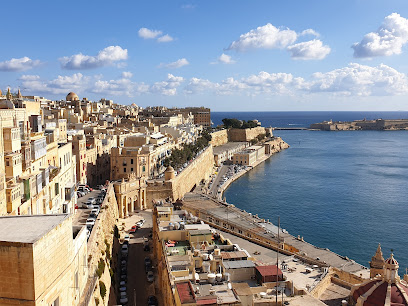
Marsaxlokk Open Market
Explore the lively Marsaxlokk Open Market for a taste of local culture, fresh produce, and unique crafts in the heart of Malta's fishing village.
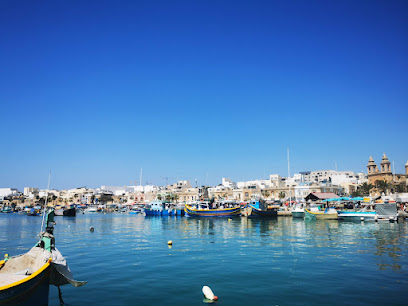
Blue Grotto
Explore the iconic Blue Grotto in Malta, where sparkling blue waters and stunning caves create a breathtaking natural wonder.
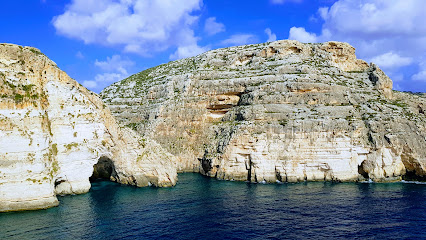
Marsaxlokk Harbour
Explore Marsaxlokk Harbour, Malta's vibrant fishing village, known for its colorful boats, delicious seafood, and rich cultural heritage.
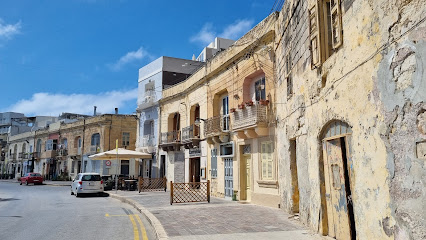
Ħal Saflieni Hypogeum
Explore Ħal Saflieni Hypogeum, Malta’s ancient underground marvel that reveals the secrets of prehistoric civilizations in an unforgettable setting.
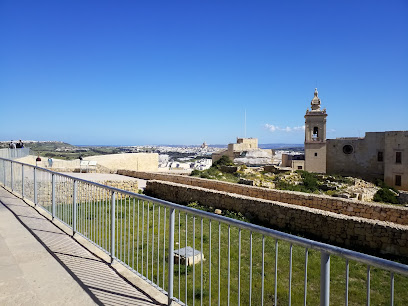
Tarxien Temples
Explore the Tarxien Temples, Malta's ancient archaeological marvel, showcasing remarkable Neolithic architecture and rich cultural heritage.
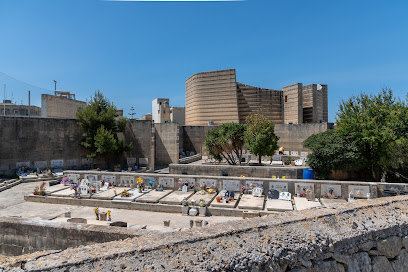
La Nostra Padrona
Experience the best of Malta's seafood at La Nostra Padrona, where every dish tells a story of the Mediterranean's rich culinary heritage.
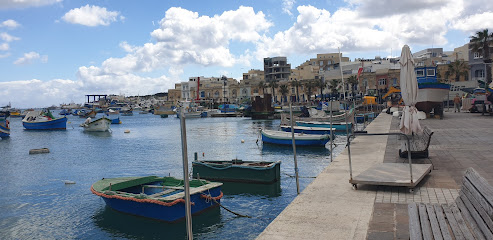
Skuna
Discover the vibrant flavors of Europe at Skuna, a charming restaurant nestled in the picturesque fishing village of Marsaxlokk, Malta.
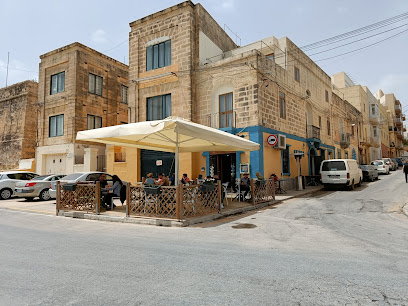
Xrobb l-Għaġin
Discover the breathtaking coastal beauty of Xrobb l-Għaġin, a serene park in Marsaxlokk, perfect for relaxation and exploration under the Maltese sun.
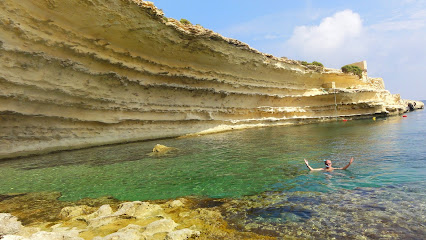
Harbour by Johann
Discover the culinary delights of Harbour by Johann in Marsaxlokk, where fresh seafood meets stunning sea views in a vibrant dining atmosphere.
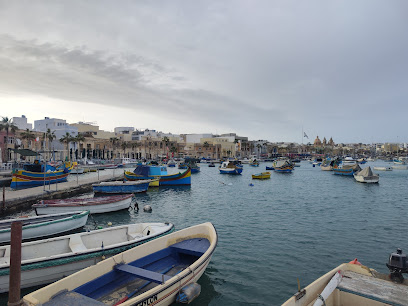
Santwarju tal-Madonna ta’ Pompei
Discover the spiritual and architectural beauty of Santwarju tal-Madonna ta’ Pompei, a must-visit Catholic church in the heart of Marsaxlokk, Malta.
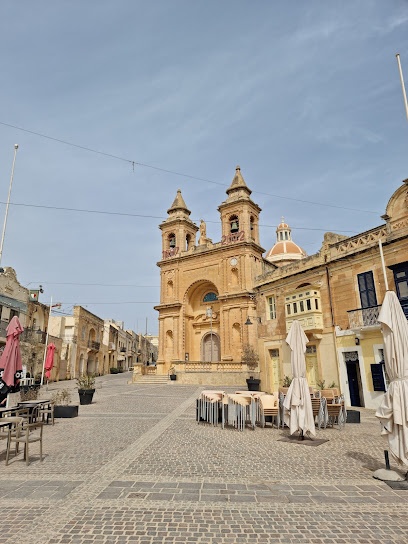
Harbour Lights
Experience the best of Maltese cuisine with stunning views at Harbour Lights, a must-visit restaurant in the charming village of Marsaxlokk.
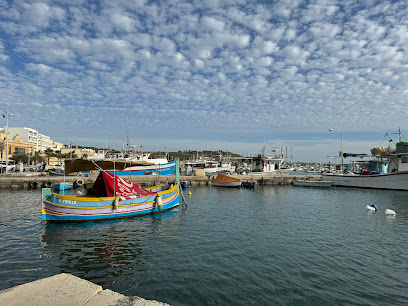
Ta' Kalanka Sea Cave
Experience the natural beauty of Ta' Kalanka Sea Cave, a serene coastal escape in Malta with breathtaking views and crystal-clear waters.
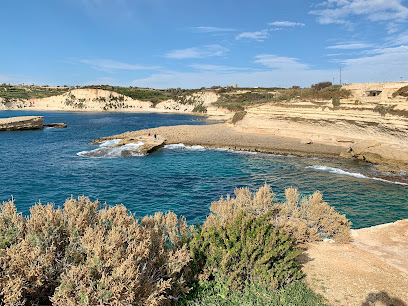
Il Bukkett Restaurant Marsaxlokk Malta
Experience authentic Mediterranean seafood at Il Bukkett Restaurant in Marsaxlokk, Malta, with stunning waterfront views and local flavors.
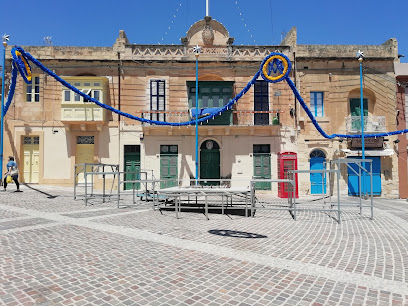
Port View Guest House
Experience the tranquility of Marsaxlokk at Port View Guest House, where comfort meets local charm in a stunning coastal setting.

Unmissable attractions to see
Blue Grotto
Experience the breathtaking beauty of the Blue Grotto in Malta, a scenic spot and historical landmark perfect for unforgettable adventures.
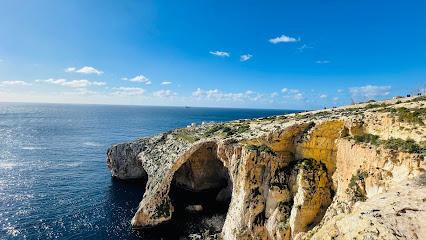
Hagar Qim Temple
Discover the ancient marvels of Hagar Qim Temple in Malta, an archaeological wonder that reveals the island's rich heritage and stunning coastal views.
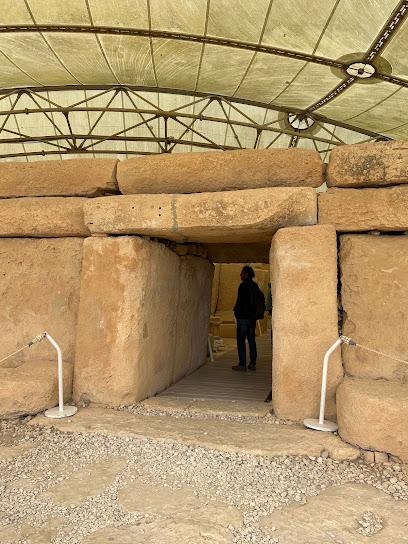
Marsaxlokk Harbour
Experience the vibrant culture and stunning views of Marsaxlokk Harbour, Malta's charming fishing village with colorful boats and delicious local cuisine.
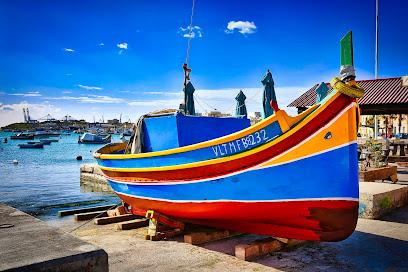
Tarxien Temples
Explore the Tarxien Temples, Malta's ancient megalithic marvels that showcase prehistoric artistry and cultural heritage.
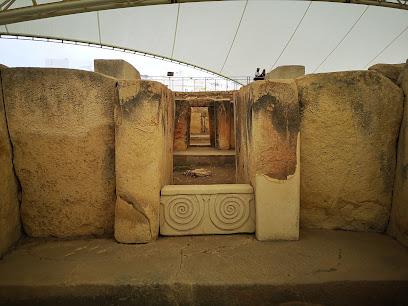
Mnajdra Temple
Explore the ancient wonders of Mnajdra Temple, a remarkable archaeological site in Malta that offers breathtaking views and rich history.
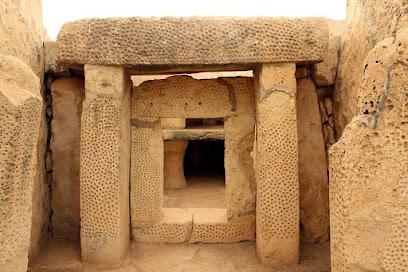
Għar Dalam Cave
Explore Ghar Dalam Cave, Malta's ancient underground marvel, revealing prehistoric secrets and stunning geological formations.
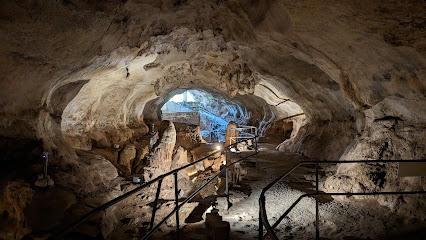
Pjazza San Publiju
Discover the beauty and rich history of Pjazza San Publiju, a must-visit historical landmark in the charming town of Floriana, Malta.
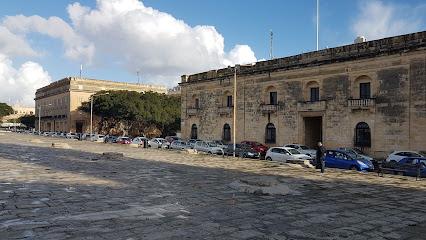
Knisja ta 'San Publiju
Explore the serene charm and rich history of Knisja ta 'San Publiju in Floriana, Malta's stunning architectural gem and spiritual haven.
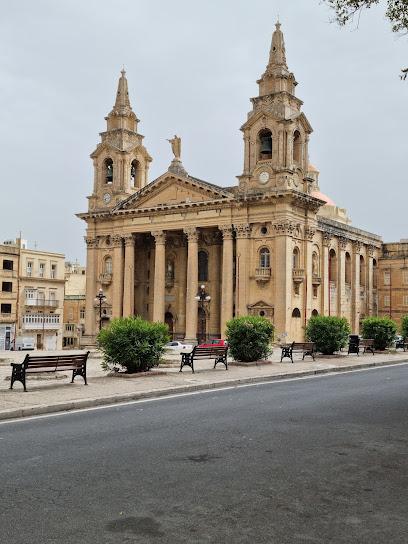
Għar Lapsi
Explore the serene beauty of Għar Lapsi, Malta's stunning bay known for crystal-clear waters, snorkeling adventures, and breathtaking coastal views.
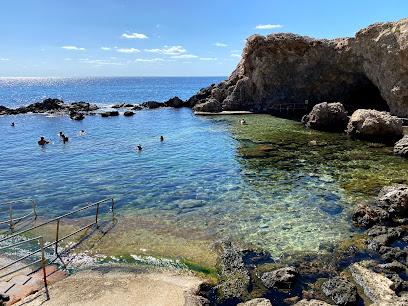
Borġ In-Nadur
Explore the ancient ruins of Borġ In-Nadur in Malta, a captivating historical landmark revealing the island's rich prehistoric heritage.
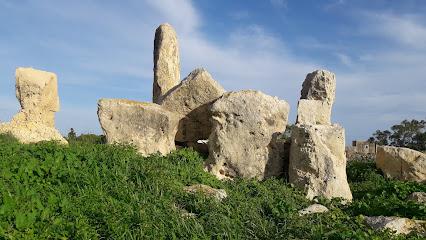
Collegiate Church of the Immaculate Conception
Discover the beauty and tranquility of the Collegiate Church of the Immaculate Conception in Cospicua, a stunning example of Maltese Baroque architecture.
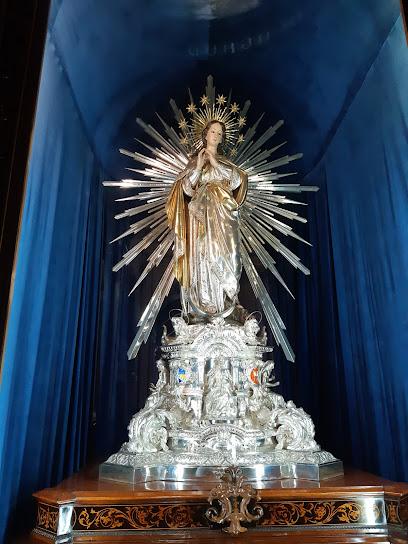
Zatoka Marsaxlokk
Explore Zatoka Marsaxlokk, a vibrant farmers' market in Malta offering fresh produce, seafood, and a taste of local culture in a picturesque setting.

Notre Dame Gate
Discover the historic Notre Dame Gate in Birgu, Malta - a majestic entry to the past with stunning architecture and rich cultural significance.
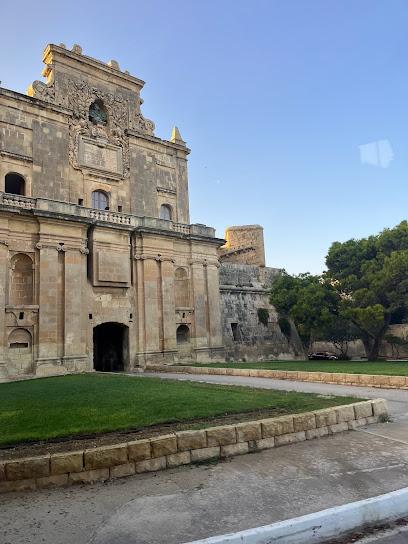
It-Torri ta' San Lucjan
Explore the historical charm of It-Torri ta' San Lucjan in Marsaxlokk, Malta, a stunning fortress offering breathtaking coastal views and rich heritage.
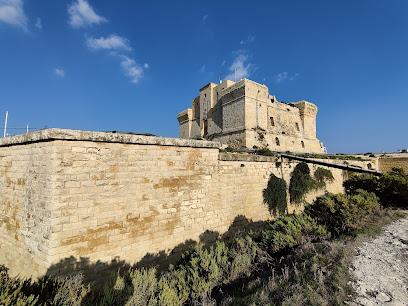
St Thomas Bay
Discover the tranquil beauty of St. Thomas Bay in Malta, a perfect blend of sun, sea, and history for every traveler.
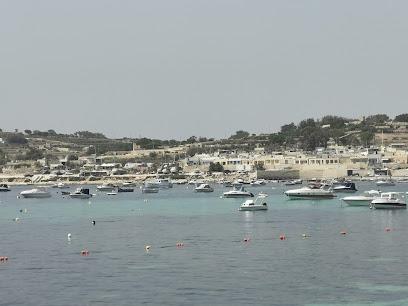
Essential places to dine
DistrictFive
Experience contemporary Maltese cuisine at DistrictFive by Pretty Bay – where flavor meets stunning coastal views.
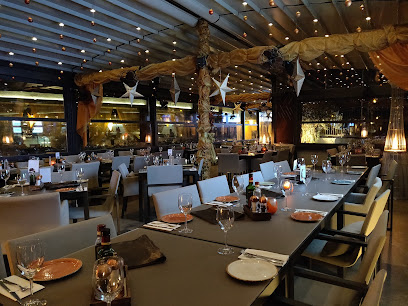
La Nostra Padrona
Experience authentic Mediterranean seafood at La Nostra Padrona in Marsaxlokk - where tradition meets taste by the sea.
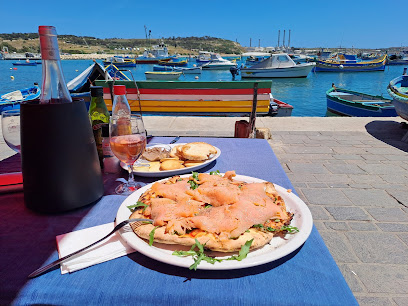
Carrubia | Restaurant - Pizzeria
Experience the essence of Italy with authentic pizzas and traditional dishes at Carrubia Restaurant - Pizzeria in scenic Marsaxlokk.
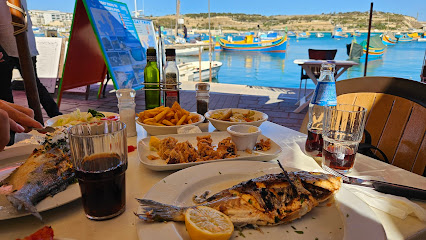
Al Legna Pizzeria
Experience authentic Italian flavors at Al Legna Pizzeria in Marsaskala - where every slice tells a story!
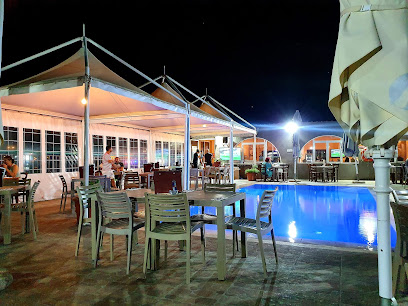
Roots Restaurant
Experience authentic Maltese seafood cuisine at Roots Restaurant in Marsaxlokk with stunning waterfront views and locally sourced ingredients.
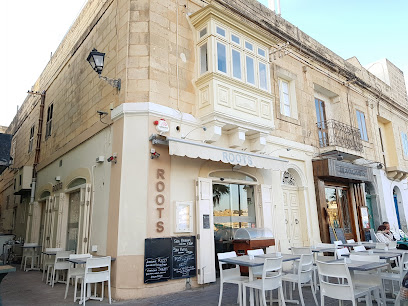
Ferretti Restaurant
Experience authentic Mediterranean flavors at Ferretti Restaurant in Birżebbuġa – a perfect blend of taste, ambiance, and hospitality.
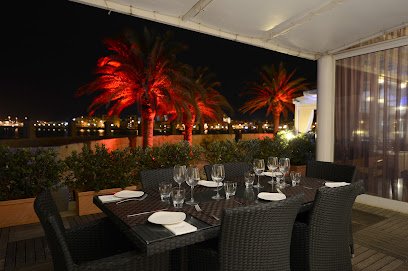
Skuna
Experience exquisite European dining at Skuna in Marsaxlokk—where fresh flavors meet stunning waterfront views.
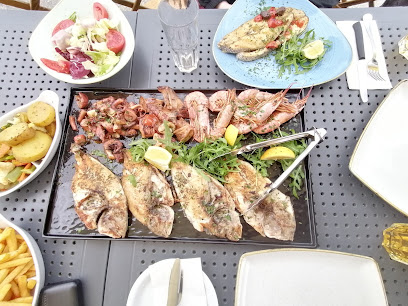
T'Annamari Restaurant
Experience authentic Italian and Mediterranean flavors at T'Annamari Restaurant in scenic Marsaxlokk – a must-visit for food lovers.
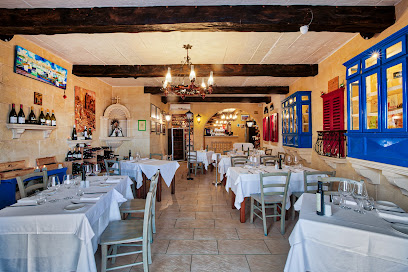
Tartarun Restaurant
Experience the finest seafood at Tartarun Restaurant in Marsaxlokk, where fresh catches meet breathtaking harbor views.
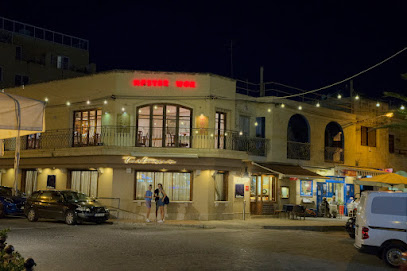
Cafe De Paris
Experience authentic Maltese cuisine at Café De Paris in Marsaxlokk - where delightful flavors meet stunning waterfront views.
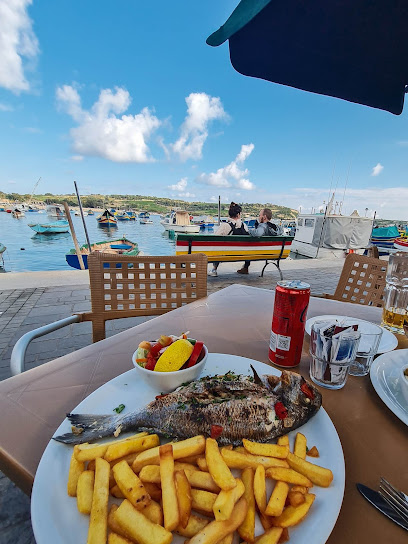
iPlace
Discover authentic Maltese cuisine at iPlace in Marsaxlokk – where tradition meets taste amidst stunning coastal views.
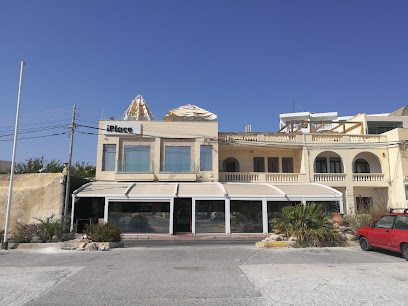
Liska Restaurant
Discover authentic Maltese cuisine at Liska Restaurant in beautiful Marsaxlokk—where every meal is a celebration of local flavors.
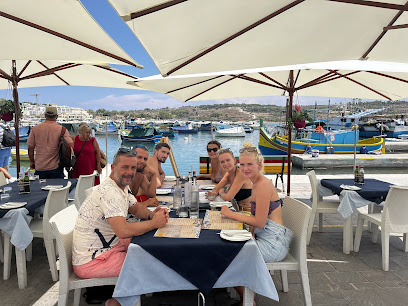
Harbour by Johann
Experience authentic Maltese cuisine at Harbour by Johann while enjoying breathtaking views of Marsaxlokk's vibrant harbor.
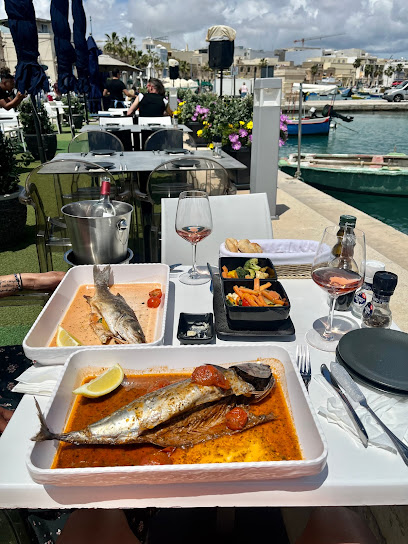
Ta' Victor
Experience the authentic taste of Malta at Ta' Victor – where fresh seafood meets traditional Maltese hospitality.
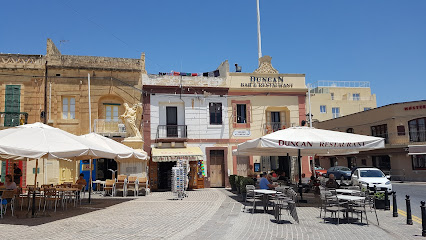
Mr. Fitz
Discover exquisite Mediterranean flavors at Mr. Fitz in Marsaxlokk, where fresh seafood meets charming seaside views.
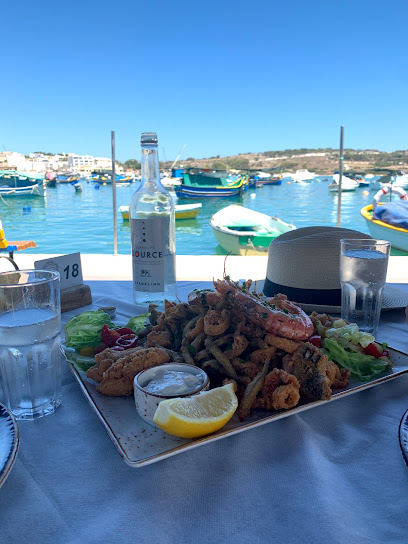
Markets, malls and hidden boutiques
Marsaxlokk Open Market
Discover the colorful atmosphere of Marsaxlokk Open Market, where local produce, crafts, and stunning seaside views await every Sunday.
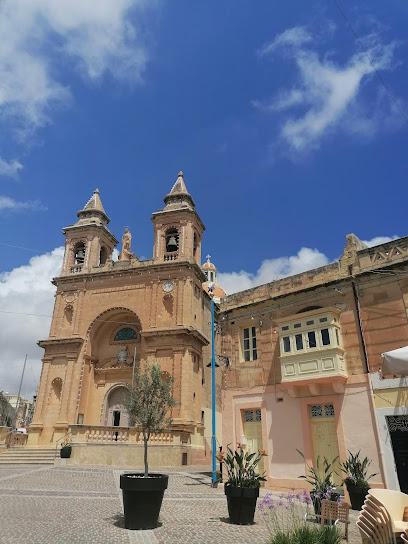
SPAR Marsaxlokk
Experience the essence of Malta at SPAR Marsaxlokk, your go-to supermarket for fresh produce and local delicacies.
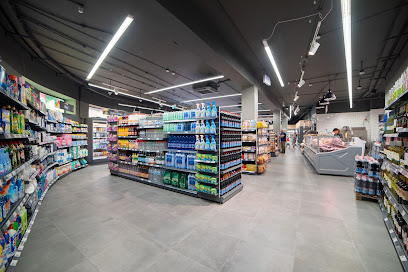
Costa Coffee - Marsaxlokk
Enjoy a cozy coffee experience in Marsaxlokk with stunning harbor views and delightful pastries at Costa Coffee.
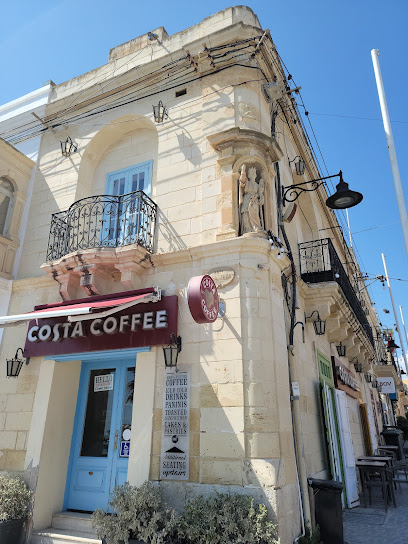
T.M. Hardware Store
Explore T.M. Hardware Store in Marsaxlokk for quality tools and an authentic local shopping experience amidst the charm of this fishing village.
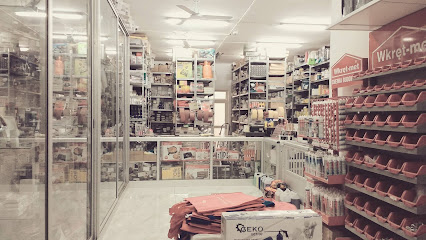
Sea Coast Confectionary
Experience local Maltese treats and everyday essentials at Sea Coast Confectionary in charming Marsaxlokk.
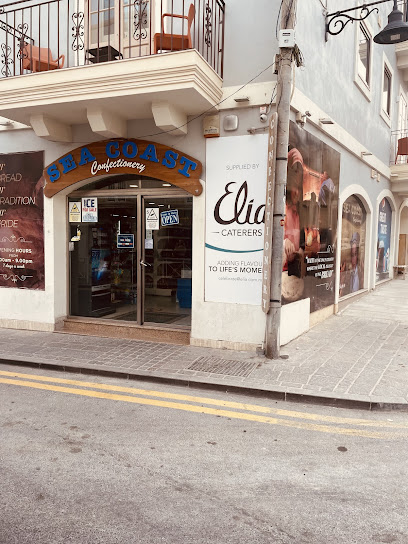
Pet Food Malta
Explore Pet Food Malta in Marsaxlokk for premium pet supplies and a vibrant community of pet lovers.

Old Trafford Stationery
Explore Old Trafford Stationery in Marsaxlokk for a charming selection of quality stationery and local treasures, perfect for all your creative needs.
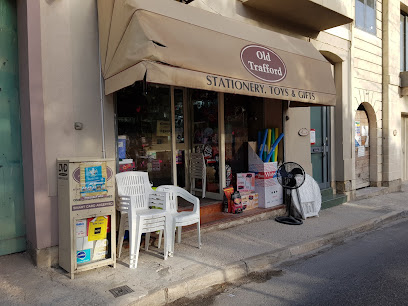
Tulliera
Explore Tulliera in Marsaxlokk for fresh organic produce and a taste of Malta's vibrant agricultural heritage.
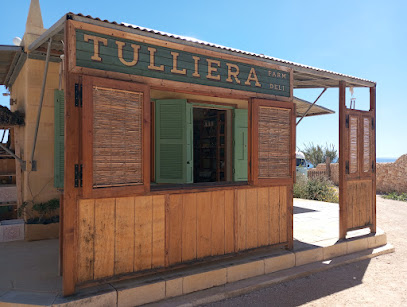
Valley Pet Shop
Explore Valley Pet Shop in Marsaxlokk, Malta – a must-visit for pet lovers offering a wide range of supplies in a charming coastal setting.
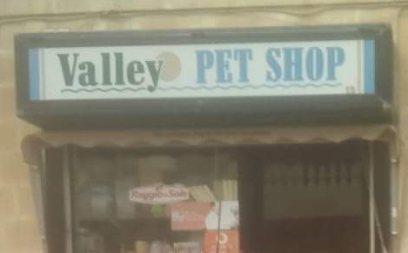
Pompei Bakery and Covenience
Experience the authentic flavors of Malta at Pompei Bakery in Marsaxlokk, where tradition meets taste in every bite.
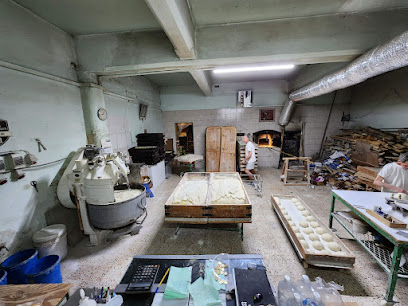
Micar Minimarket
Explore the flavors of Malta at Micar Minimarket, your essential stop for local products and fresh groceries in the charming village of Marsaxlokk.
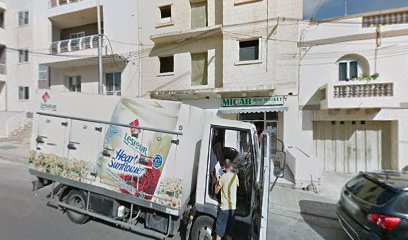
AmorKado
Discover unique handcrafted gifts at AmorKado, where creativity meets elegance in every personalized treasure.
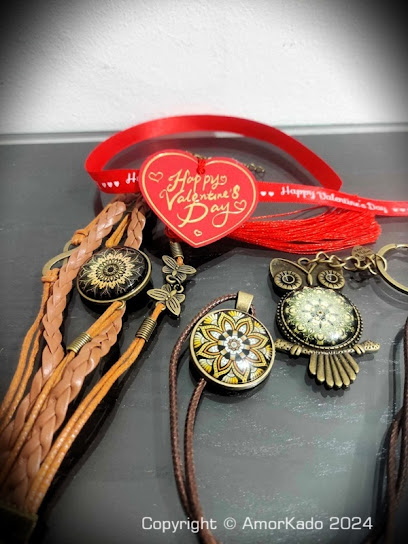
Ernest's Marine Centre
Explore the vibrant fishing culture of Malta at Ernest's Marine Centre, your one-stop shop for all fishing needs in Marsaxlokk.
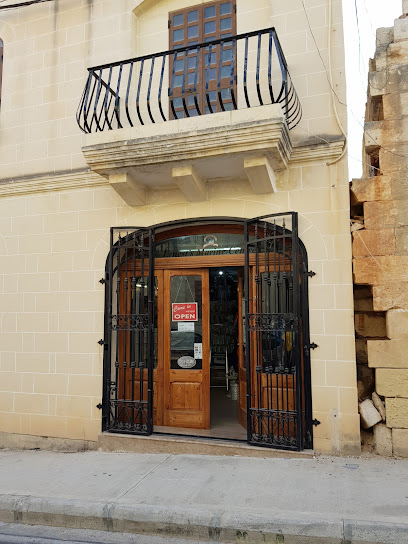
Gem's Confectionery
Discover the delightful world of sweets at Gem's Confectionery in Marsaxlokk, where local flavors and artisanal craftsmanship come together.
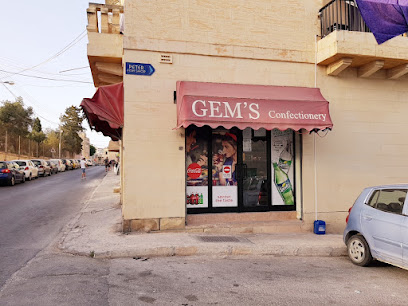
Parruccan
Discover Parruccan, a bakery in Marsaxlokk offering local flavors amidst mixed reviews, perfect for curious travelers seeking a taste of Malta.
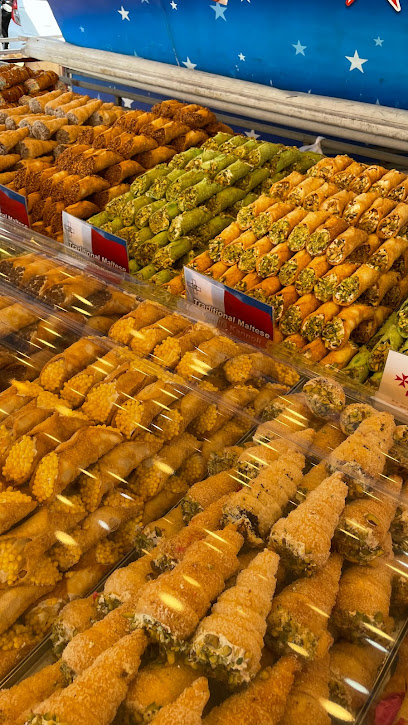
Essential bars & hidden hideouts
La Nostra Padrona
Discover the best seafood in Marsaxlokk at La Nostra Padrona, where fresh catches meet traditional Maltese flavors.
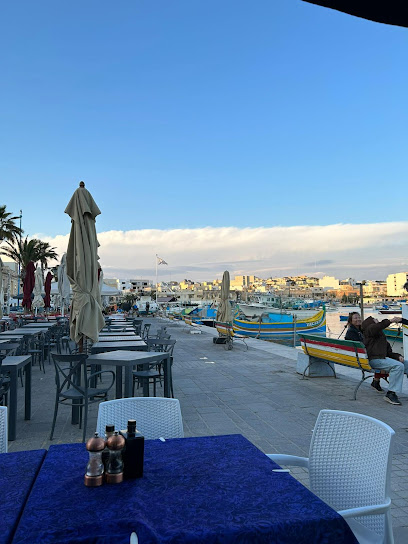
Carrubia | Restaurant - Pizzeria
Experience the delicious flavors of Italy at Carrubia in Marsaxlokk, where fresh ingredients and a beautiful seaside location create the perfect dining experience.
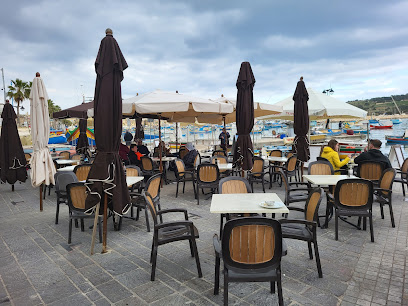
Roots Restaurant
Discover the essence of Mediterranean cuisine at Roots Restaurant, where fresh seafood meets stunning bay views in Marsaxlokk, Malta.
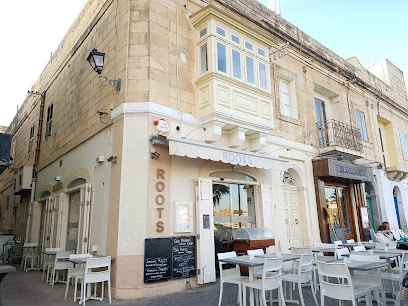
Skuna
Experience the vibrant flavors of Malta at Skuna, a delightful European restaurant in Marsaxlokk, perfect for food lovers and cultural explorers alike.
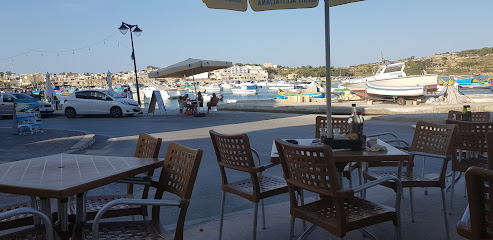
Tartarun Restaurant
Discover Tartarun Restaurant in Marsaxlokk for a premier seafood dining experience with breathtaking harbor views.
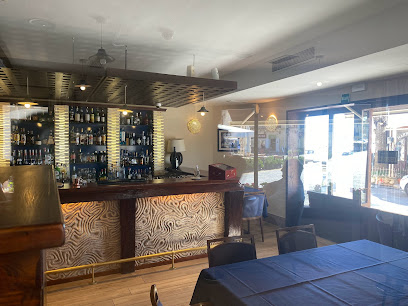
Cafe De Paris
Experience the delightful flavors of Malta at Café De Paris, where stunning views meet exquisite cuisine in Marsaxlokk.
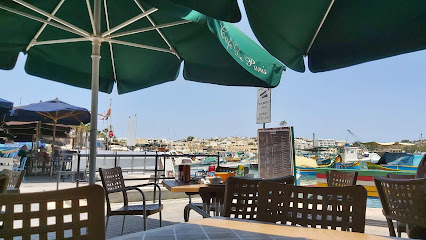
Harbour by Johann
Savor the freshest seafood and authentic Maltese dishes at Harbour by Johann, a charming restaurant overlooking the picturesque Marsaxlokk harbor.
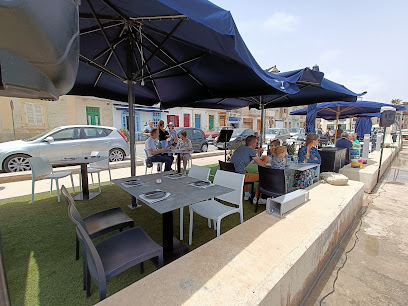
Mr. Fitz
Discover exquisite seafood and authentic Maltese cuisine at Mr. Fitz in the charming village of Marsaxlokk, where every meal is a celebration of local flavors.
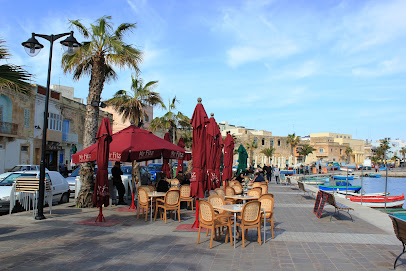
Harbour Lights
Experience authentic Maltese cuisine at Harbour Lights, where fresh seafood meets stunning views in the heart of Marsaxlokk.
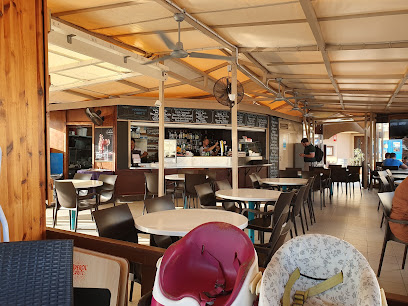
Pisces Restaurant Marsaxlokk
Experience the best of Maltese seafood at Pisces Restaurant in Marsaxlokk, with stunning views and a warm, inviting atmosphere.
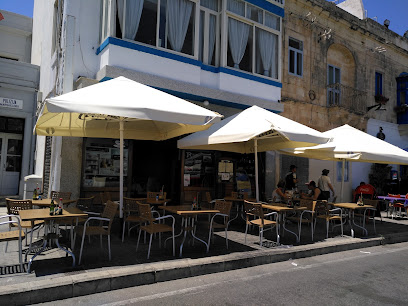
La Capanna Restaurant
Experience fresh seafood and authentic Maltese cuisine at La Capanna Restaurant in scenic Marsaxlokk, where every meal is a celebration of local flavors.
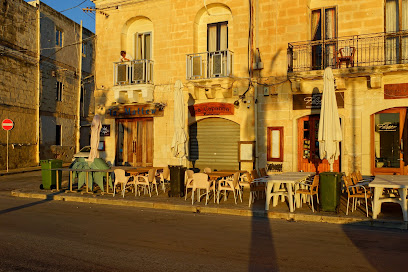
Hunters Tower
Discover the flavors of Malta at Hunters Tower, a seaside restaurant offering fresh seafood and stunning views in Marsaxlokk.
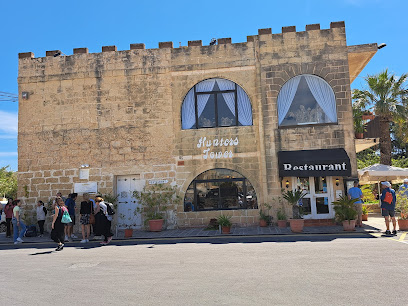
The Deck Restaurant
Experience the best of Maltese cuisine with fresh seafood and stunning bay views at The Deck Restaurant in Marsaxlokk.
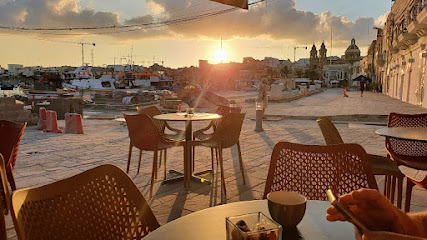
Il Bukkett Restaurant Marsaxlokk Malta
Experience the best of Maltese seafood and Mediterranean cuisine at Il Bukkett Restaurant in Marsaxlokk, a culinary delight by the water.
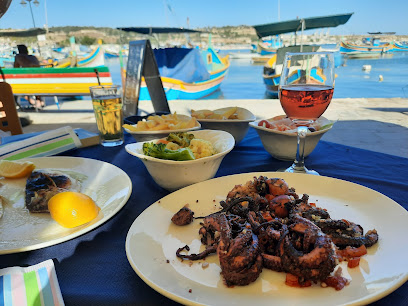
Local Phrases
-
- HelloBongu
[bon-goo] - GoodbyeĊaw
[chaw] - YesIva
[ee-va] - NoLe
[leh] - Please/You're welcomeJekk jogħġbok
[yekk yo-ɔ-bohk] - Thank youGrazzi
[grat-see] - Excuse me/SorryJekk jogħġbok
[yekk yo-ɔ-bohk] - How are you?Kif int?
[keef int] - Fine. And you?Tajjeb. U int?
[ta-yeb. oo int] - Do you speak English?Titkellem bl-Ingliż?
[tit-kel-lem bl-ing-leez] - I don't understandMa nifhimx
[ma nee-feems]
- HelloBongu
-
- I'd like to see the menu, pleaseNixtieq inara il-menu, jekk jogħġbok
[nish-teyck in-ara il-menyoo, yekk yo-ɔ-bohk] - I don't eat meatMa nagħmlux ikel tal-laħam
[ma na-għmloosh ee-kel tal-la-ham] - Cheers!Saħħa
[sa-ha] - I would like to pay, pleaseNixtieq inħallas, jekk jogħġbok
[nish-teyck in-hal-las, yekk yo-ɔ-bohk]
- I'd like to see the menu, pleaseNixtieq inara il-menu, jekk jogħġbok
-
- Help!Għajjat!
[ay-yat] - Go away!Mur
[moor] - Call the Police!Ċempel il-Pulizija!
[chem-pel il-poo-lee-zee-ya] - Call a doctor!Ċempel tabib!
[chem-pel ta-beeb] - I'm lostNinsab ħażin
[nin-sab hah-zeen] - I'm illInhobb
[in-hobb]
- Help!Għajjat!
-
- I'd like to buy...Nixtieq inkun
[nish-teyck in-koon] - I'm just lookingQed nara biss
[ked na-ra beess] - How much is it?Kemm huwa?
[kem hoo-wa] - That's too expensiveDan huwa wisq sħiħ
[dan hoo-wa weesq seeh] - Can you lower the price?Tista' tniżżel il-prezz?
[tis-ta tnee-zzel il-prezz]
- I'd like to buy...Nixtieq inkun
-
- What time is it?X'ħin huwa?
[shin hoo-wa] - It's one o'clockHuwa l-ewwel siegħa
[hoo-wa l-ew-wel see-eha] - Half past (10)Nofs il-ħin
[noffs il-heen] - MorningFilgħodu
[fil-od-oo] - AfternoonWaranofsinhar
[wa-ra-nofs-in-har] - EveningFilgħaxija
[fil-a-ha-shee-ya] - YesterdayIlbieraħ
[il-bee-er-ah] - TodayIllum
[il-lum] - TomorrowGħada
[ada] - 1Wieħed
[wee-hed] - 2Tnejn
[tneyn] - 3Tlieta
[tlee-ta] - 4Erba'
[er-ba] - 5Ħamsa
[hamsa] - 6Sitta
[sit-ta] - 7Sebgħa
[seb-gha] - 8Tmienja
[tmee-en-ya] - 9Disgħa
[dis-gha] - 10Għaxra
[a-ha-sra]
- What time is it?X'ħin huwa?
-
- Where's a/the...?Fejn hemm...
[feyn hemm] - What's the address?X'inhu l-indirizz?
[shin-hoo l-ind-eer-eetz] - Can you show me (on the map)?Tista' turiġġini (fuq it-taqsima)?
[tis-ta toor-ig-gi-nee fooq it-tak-si-ma] - When's the next (bus)?Meta jasal (il-ġuwa)?
[me-ta ya-sal il-joo-wa] - A ticket (to ....)Biljett (għal ....)
[bil-yet tal]
- Where's a/the...?Fejn hemm...
History of Marsaxlokk
-
Marsaxlokk's history dates back to around 900 BC when the Phoenicians settled in the area. They used the sheltered bay as a strategic port for their trading routes across the Mediterranean. The name 'Marsaxlokk' itself is derived from the Arabic word 'marsa', meaning port, and 'xlokk', referring to the southeast wind.
-
During the Roman era, Marsaxlokk continued to serve as an important harbor. Archaeological findings, such as Roman pottery and ruins, suggest that the bay was heavily utilized for maritime trade and military purposes. The Romans fortified the area to protect it from pirate raids, turning it into a bustling maritime hub.
-
In the medieval period, Marsaxlokk's strategic importance persisted. When the Knights of St. John arrived in Malta in 1530, they recognized the bay's value for defense. The Knights constructed several fortifications, including Fort Delimara and Fort St. Lucian, to protect against Ottoman invasions. These fortresses still stand today, offering a glimpse into the area's turbulent past.
-
Marsaxlokk played a pivotal role during the Great Siege of Malta in 1565. The Ottoman Empire, aiming to capture the island, used the bay as a landing point for their troops. The Knights of St. John and the Maltese people heroically defended the area, resulting in a significant victory that is celebrated to this day.
-
Under British rule, Marsaxlokk evolved into a prominent fishing village. The British improved the harbor's infrastructure, making it a key point for naval logistics. The construction of the Marsaxlokk Breakwater in the 19th century provided additional protection for the fishing boats, ensuring a thriving local fishing industry.
-
Today, Marsaxlokk is renowned for its picturesque harbor filled with colorful 'luzzus'—traditional Maltese fishing boats. The village holds a vibrant fish market every Sunday, attracting both locals and tourists. Marsaxlokk's rich history and cultural heritage are evident in its architecture, cuisine, and annual festivals, making it a must-visit destination in Malta.
Marsaxlokk Essentials
-
Marsaxlokk is located in the southeastern part of Malta. The nearest international airport is Malta International Airport (MLA) in Luqa, approximately 8 kilometers away. From the airport, you can take a taxi directly to Marsaxlokk, which typically takes around 20 minutes. Alternatively, you can use the public bus service, with routes X4 and 119 providing direct connections to the village. Car rentals are also available at the airport for those who prefer to drive themselves.
-
Marsaxlokk is a small village, and most of its attractions are within walking distance. For traveling within the village or to nearby areas, local buses are the most convenient and economical option. Taxis are readily available and can be hailed on the street or booked in advance. If you prefer more flexibility, consider renting a bicycle or a scooter to explore the surroundings at your own pace. Car rentals are also an option for longer excursions.
-
The official currency in Malta is the Euro (EUR). Credit and debit cards are widely accepted in hotels, restaurants, and shops in Marsaxlokk. However, it is advisable to carry some cash for smaller establishments and market stalls. ATMs are available in the village for cash withdrawals. Currency exchange services are also available at the airport and in major towns.
-
Marsaxlokk is generally a safe destination for tourists. However, it is always wise to take standard precautions. Avoid leaving your belongings unattended, especially in crowded areas such as the Sunday fish market. There are no specific high-crime areas targeting tourists in Marsaxlokk, but it is always best to stay vigilant and aware of your surroundings, particularly at night.
-
In case of emergency, dial 112 for immediate assistance. Marsaxlokk has a local police station and medical facilities available. It is recommended to have travel insurance that covers medical emergencies. For minor health issues, there are pharmacies in the village where you can purchase over-the-counter medications.
-
Fashion: Do dress modestly, especially when visiting religious sites. Avoid wearing overly revealing clothing. Religion: Do respect local customs and traditions. Always cover your shoulders and knees when entering churches. Public Transport: Do be respectful and give up your seat to elderly passengers. Don’t eat or drink on public transport. Greetings: Do greet people with a friendly 'Hello' or 'Bongu' (Good morning in Maltese). A handshake is also common. Eating & Drinking: Do try local delicacies such as fresh seafood and traditional Maltese dishes. Don’t refuse food offerings, as it is considered impolite.
-
To experience Marsaxlokk like a local, visit the Sunday fish market where you can buy fresh seafood directly from fishermen. Engage with locals, as they are often friendly and willing to share stories about the village’s history and culture. Don’t miss the chance to dine at a local restaurant by the waterfront for an authentic Maltese meal. For a unique experience, take a boat tour to explore the nearby coastline and hidden coves.
Trending Landmark in Marsaxlokk
Nearby Cities to Marsaxlokk
-
Things To Do in Zejtun
-
Things To Do in Marsaskala
-
Things To Do in Tarxien
-
Things To Do in Paola
-
Things To Do in Birgu
-
Things To Do in Zurrieq
-
Things To Do in Marsa
-
Things To Do in Valletta
-
Things To Do in Mqabba
-
Things To Do in Gzira
-
Things To Do in Sliema
-
Things To Do in St. Julian's
-
Things To Do in Mdina
-
Things To Do in Rabat
-
Things To Do in Qawra










